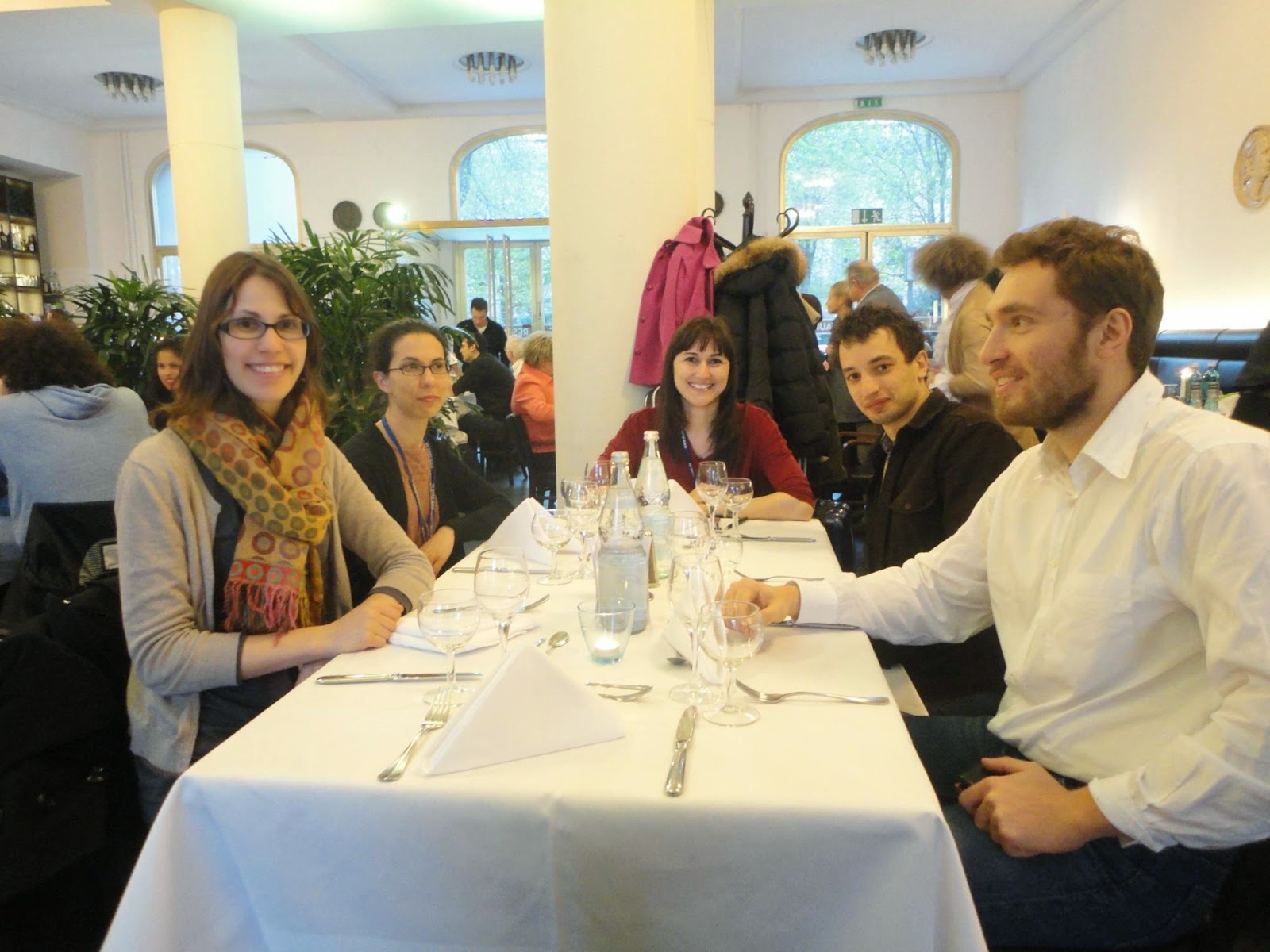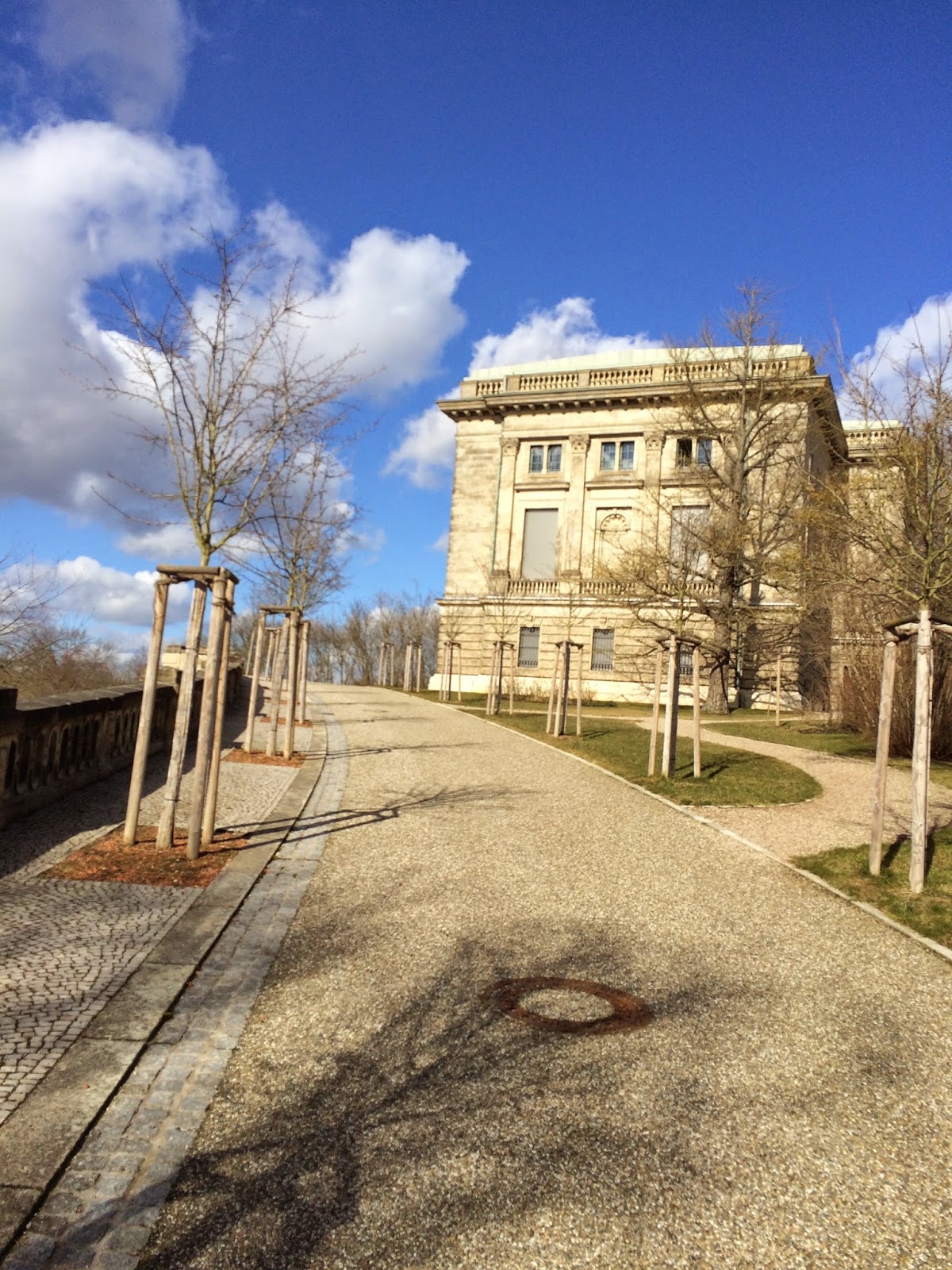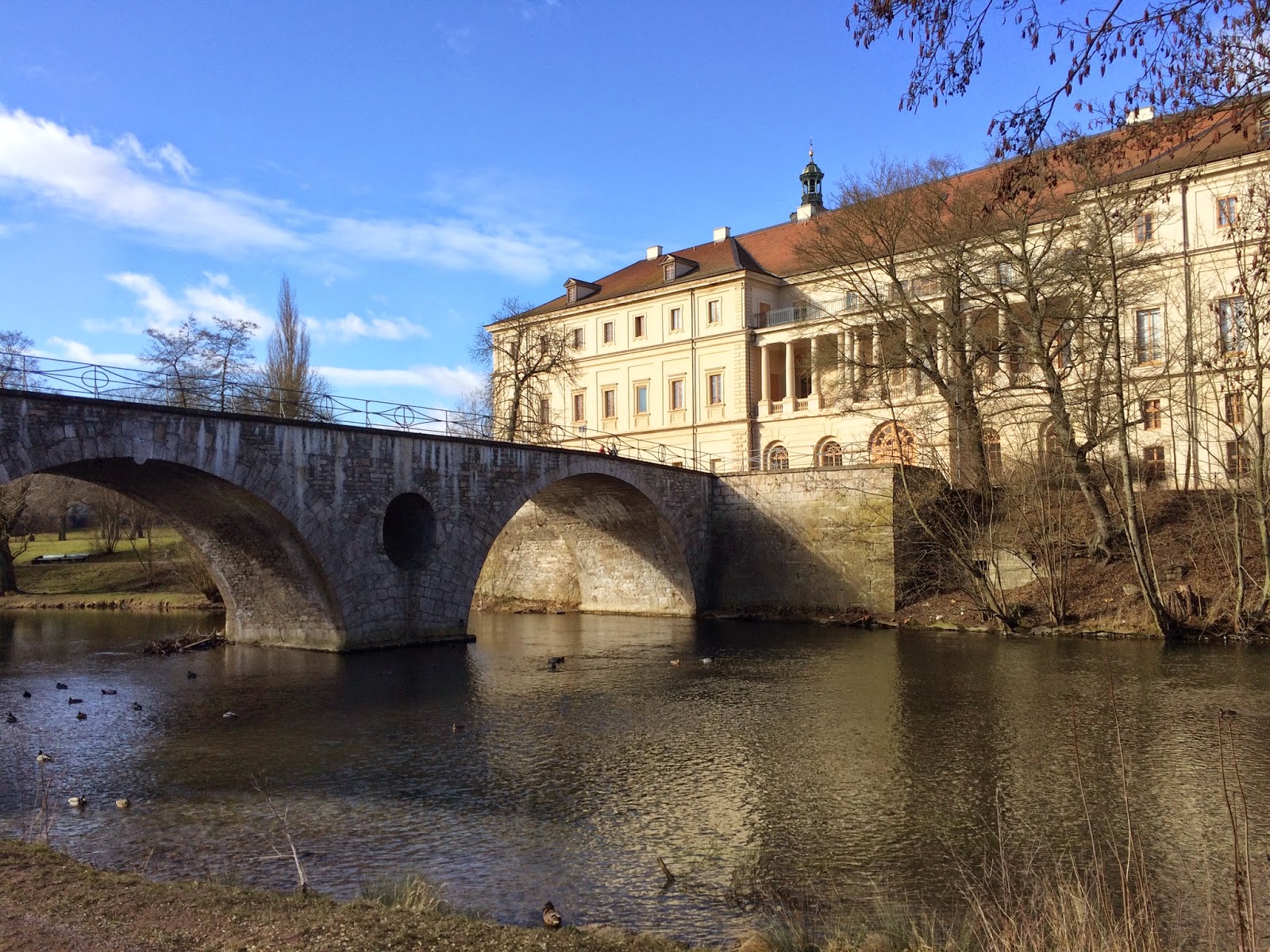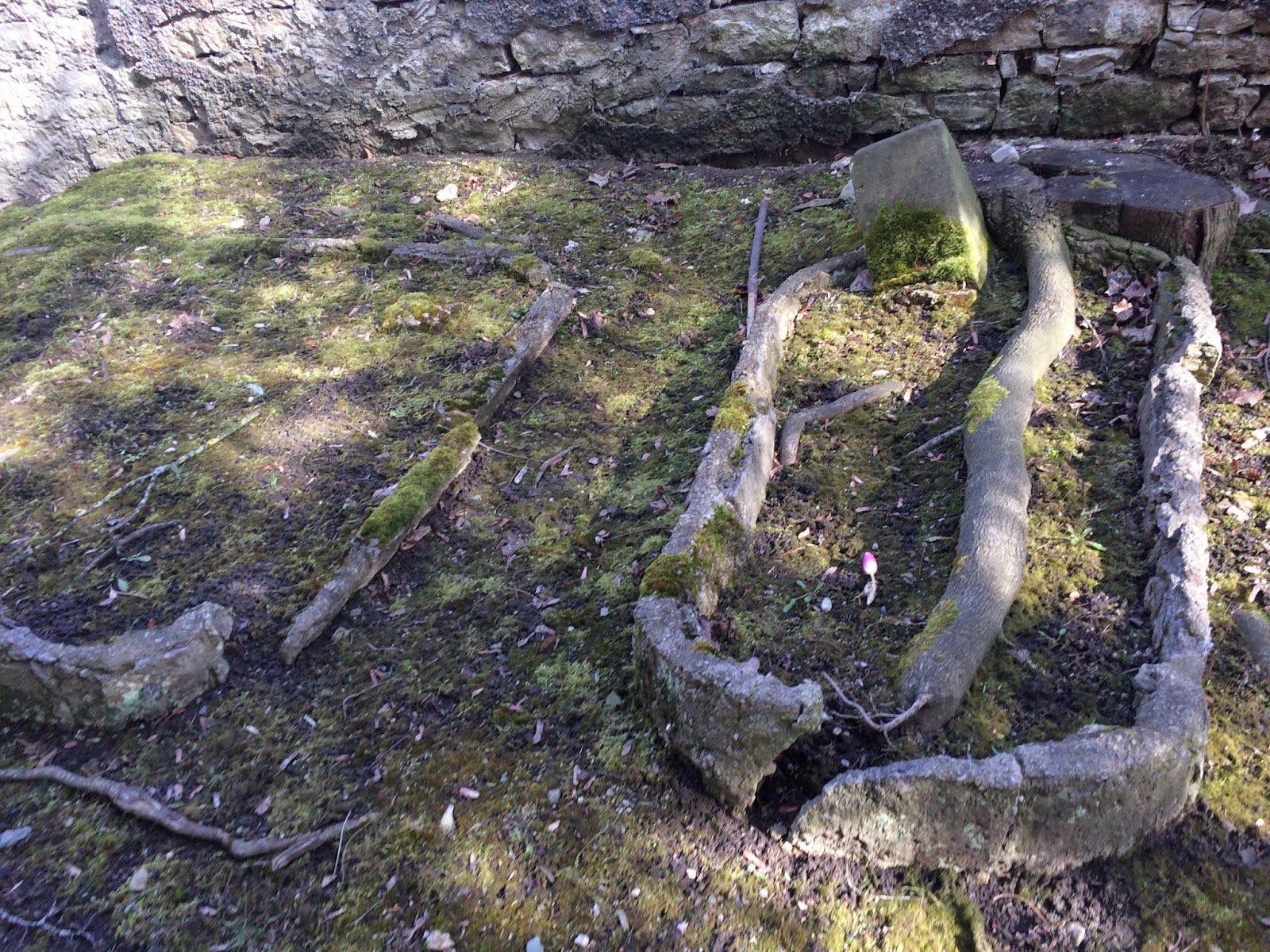Berlin experiences a magical transformation in April. When spring reaches the point of no return, the whole atmosphere comes alive: overflowing outdoor cafes, picnics, beer gardens, bicycles everywhere. Walking through Tempelhof on a Sunday feels like Woodstock without the music.
 |
| Gleisdreieck: train tracks through the woods. Another awesome Berlin park that mixes urban with nature with Woodstock. |
 |
| The Comenius Garden: a little slice of paradise tucked away in Neukölln. |
 |
| Körnerpark in Neukölln. (And incidentally: right now I'm living in Franz Körner's house!) |
 |
| A large urban lake/fountain/marsh I recently discovered near the Kulturforum. |
 |
| Angular koi-pond on one end, natural marsh on the other. |
And it's just as Berlin has started to wake up that I'm making my rounds and saying goodbyes. In less than 2 weeks I'm heading to Vienna. This is of course good news -- everyone says Vienna is awesome. Somehow, though, I feel a special kind of connection to Berlin and I'll be sorry to go.
...yes, that's right. I am the ONLY AMERICAN ever to want to stay in Berlin.
 |
| Siegessäuleselfie. Berlin, it's been real. |
Meanwhile, I had a fun weekend at the Akademie der Künste for the DAAD-Treffen for musicians and musicologists. Someone at the DAAD made an executive decision that Musikwissenschaftler are first-cousins to musicians, second-cousins to other Wissenschaftler -- and though I'm not entirely sure that's the case, I'm so glad that I was invited to the music meeting rather than sitting through days of utopian quasi-TED lectures on the virtues of the humanities. I spent the weekend getting to know musicians from all over the world, observing masterclasses, and hearing some terrific presentations and performances -- all for the small price of a lecture.
 |
| Looking deer-in-the-headlights with a fun crowd. Schöne Zeit mit warmen Fuzzies. |
 |
| Bravi! |
The offshoot of hanging out with musicians: I've finally realized deep down that I ABSOLUTELY MUST play piano more seriously again. (And by "more seriously" I mean actually learning rep, rather than dicking around in a practice room on occasion.) I've been experiencing an alarming and depressing piano-decline since I started grad school. The more I immerse myself in books, the more my performer-self fades. I've felt for years like that expressive part of myself is missing, and I've wanted it back, but somehow I lost touch with
my grit.
But not anymore. I'm now determined to rent a practice room in Vienna (urgh €€ but it's worth it) and start working on a recital program for next year. I spent three hours yesterday listening to music on Spotify, trying out different combinations of rep, envisioning the perfect program.
It's interesting how thoughtful programming can be like storytelling. I've decided to build my program around the
Bach B-flat major Partita, a piece that just breathes spring and grass and unassuming sunrise. (Not a spectacular sunrise -- just the kind that is completely ordinary, but nonetheless perfect... at least that's how I interpret the Prelude. Sounds cheesy in words, feels lovely in feelings.) I wanted to put a Scarlatti sonata at the beginning and I'm infatuated with the
B minor Sonata K. 27. (Why are harmonic sequences so captivating? How can composing by numbers be so magical?) But I realized that ending on B-minor just before a piece in B-flat major sounds like barf. So now I'm trying to find a Scarlatti Sonata in F major (don't roll your eyes, the dominant-tonic thing really works) that's whimsical but also lovely, with just enough oomph at the end to propel us into the Bach. And then after the final spritz of the Gigue, I envision a pivot:
B-flat major to B-flat minor, Bach to Brahms. But not a honeyed or impassioned Brahms -- a tightly controlled, contrapunctal, mirror-image Brahms. A subtle pivot from Bach, rather than
Brahms appearing out of nowhere. For the rest of the Brahms section, I'm pondering bringing back a couple pieces from way-back-when (partly strategically to shorten my learning time, partly because I love them): two items from Op. 118 re-ordered to form a pair,
No. 5 followed by
No. 3.
At this point, I'm stuck. This is around 45 minutes of music, perfect for a
Tea Time at UChicago. If I add much more, I'll be spread too thin. But the final lingering shadow-chord of the Brahms Ballade just feels too somber and mysterious. It's not the springtime of Bach and Scarlatti. It's a
bald-ruhest-du-auch kind of spring.
 |
| The Jewish cemetery in Prenzlauer Berg: peaceful, mysterious, haunting. |
 |
| Should my recital really end this way? |
Or maybe just re-re-order the Brahms, ending on spring loveliness with Op. 118, No. 5? But isn't it a bit of a denouement?
BLARG.
Programming pickle aside: I've got my groove back! Unfortunately this newfound Feuer und Flamme comes at a time when I have NO PIANO. I tried practicing Bach on my desk, but it's just not the same. And I looked like an idiot doing it.
 |
| I'll keep it warm for you until you get back. |





















































